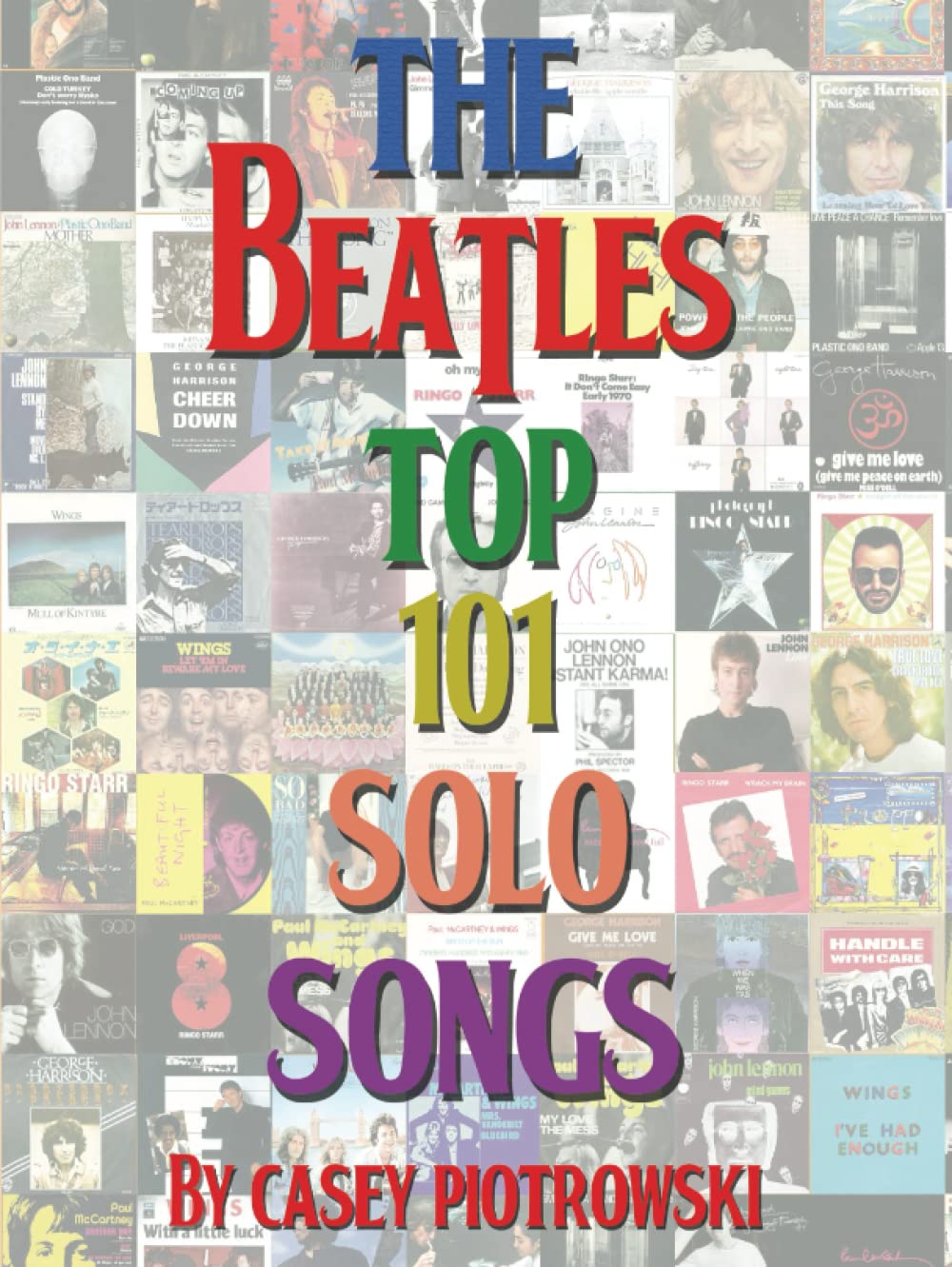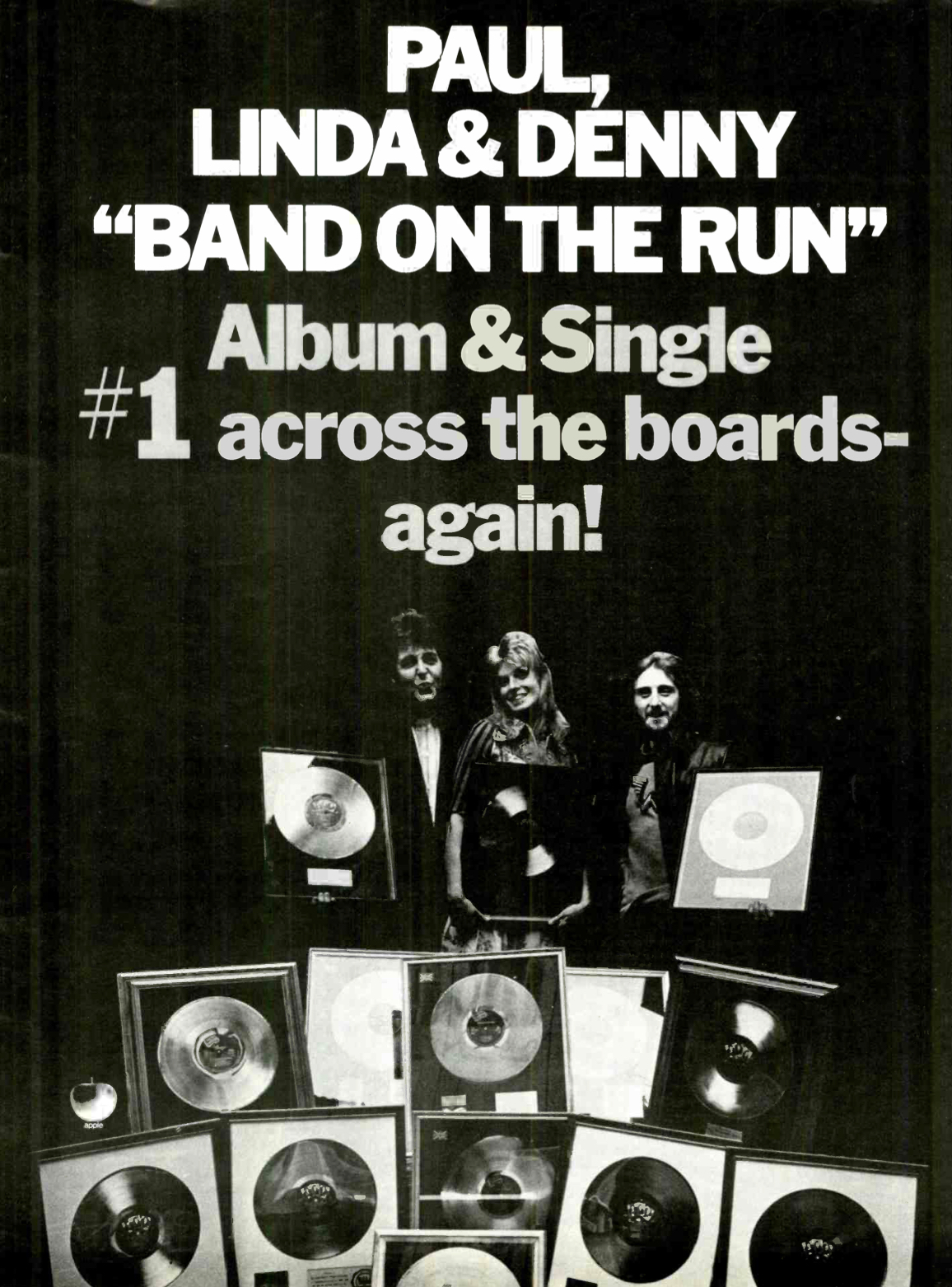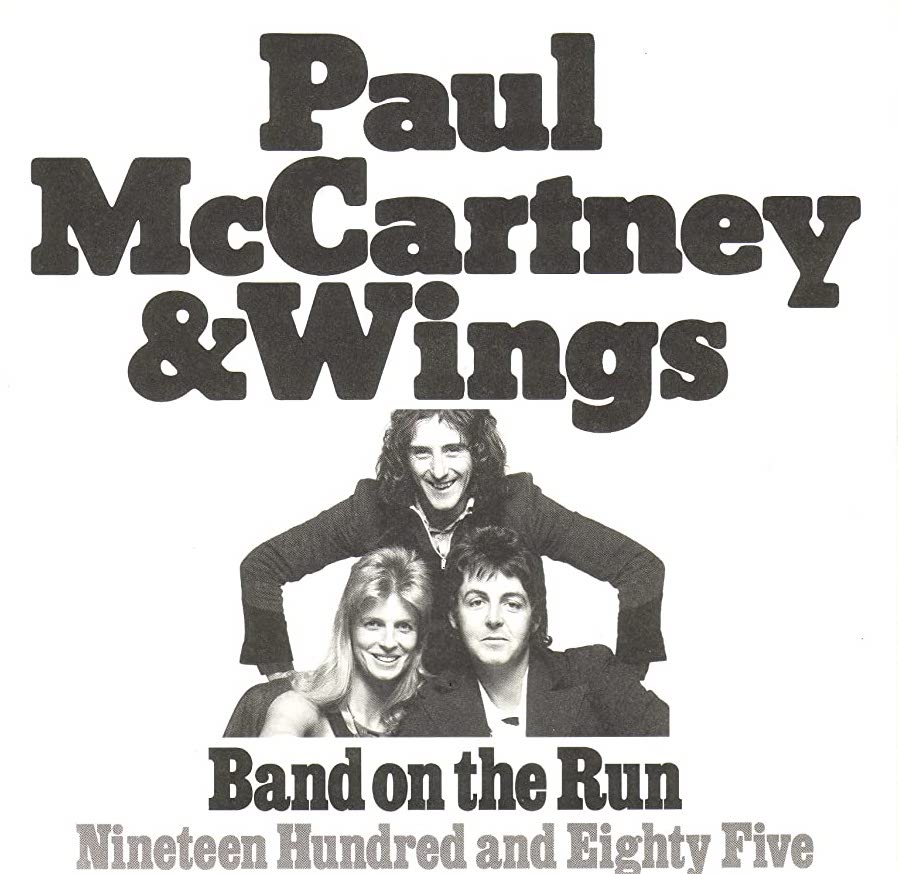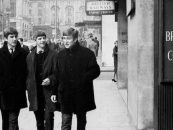 John, Paul, George and Ringo carried on their collective legacy on their own…creating a creating a body of work separately, the best of which rivaled the best of the work they did together. Author Casey Piotrowski has published The Beatles Top 101 Solo Songs that they did on their own…bringing with it some info and insight about the music and the environment…social, political, within the industry and among The Beatles themselves. He’s allowed us to excerpt the chapter on the closing number from Paul McCartney’s 1974 album, Band on the Run.
John, Paul, George and Ringo carried on their collective legacy on their own…creating a creating a body of work separately, the best of which rivaled the best of the work they did together. Author Casey Piotrowski has published The Beatles Top 101 Solo Songs that they did on their own…bringing with it some info and insight about the music and the environment…social, political, within the industry and among The Beatles themselves. He’s allowed us to excerpt the chapter on the closing number from Paul McCartney’s 1974 album, Band on the Run.
“Nineteen Hundred and Eighty Five” was a B-side simply because McCartney didn’t want or have anything in the vaults he wanted pulled out to back “Band on the Run” on a 45… and really, with the reprise of the title tune at the end of this track, the single turned out to be a mini-encapsulation of the whole LP.
The song is memorable for how it echoes The Beatles more than anything else. Well, the first thing, of course, is that reprise near the end of the work. The last time we’d heard that from a Beatle was on Sgt. Pepper. There’s also that pumping piano, of course. Though best known as a musician for being a bass man, McCartney’s signature as a songwriter… really as a melodist… would have to be the use of the piano. “Let It Be,” “Hey Jude” and, later, “Maybe I’m Amazed” rank among his best known songs and they’re all piano-dominant. Maybe they rank there because they’re all piano-dominant. And, so it is with “Nineteen Hundred and Eighty Five.” It sounds like a distant cousin to “Lady Madonna” (and it would certainly be interesting if someone mashed those two songs together to see what they could get).
Lyrically, there’s not much there. One critic at the time of the release of Band on the Run referred to the words of that song as “lyrical placeholders.” He didn’t get it. A lot of Paul’s best lyrics are those that just work with the music they’re written to. No meaning. No message… and here especially, it didn’t matter. The words just fit with the beat. They fit within the cadence of the tune. In essence, McCartney was writing a form of “rock and roll” scat… words that serve more as rhythm than rhyme.

This ad for the album and title track appeared in the June 8, 1974 issue of Record World when both topped the charts.
Often times, of course, when trying to say something… or not, McCartney’s lyrics would trend down to the level of doggerel. Not here. Paul and The Beatles didn’t always… and didn’t always need to… say something in their lyrics. The words, here, basically, are telling us simple things in a simple way. Not the easiest thing to accomplish. You have to walk the wire in making the artless seem artful… or vice versa. (And, if you look at everything John, Paul and George wrote through, say, Beatles For Sale, no one was better at saying something simply without having it come out simpleminded than those three guys.) And one of Paul’s best examples of doing it post-Beatles was right here… “No one ever left alive in 1985 will ever do”… and on through the song. McCartney, there, with lyrics that were to the point without trying to make a point.
And, of course, there’s one other touchstone to McCartney’s former musical life in that song: the crescendo at the end. It’s reminiscent of another dramatic climax to an album Paul had a lot to do with six years before: “A Day in the Life” from Sgt. Pepper and its end-of-the-world finish. The one at the end of “Nineteen Hundred and Eighty Five” builds and builds… longer than the one in Pepper‘s closer but ultimately to the same purpose. That powerful finish drops you off the cliff. It is ironic that both The Beatles and McCartney’s most acclaimed works would end the same way.
The prevailing thinking about Broadway musicals is to have a strong song to open the show… to grab the audience quickly… and a strong one to close it… so people have something to remember as they leave the theater. After doing that so often with The Beatles (“Tomorrow Never Knows,” the already mentioned “A Day in the Life,” “Good Night” and the show closer of show closers, “The End”), it is surprising that Paul didn’t… or couldn’t come up with a grand finale for virtually any of his other albums besides this one.
And in another Beatles tradition, this song was a B-side that should have been an A-side, a #1 stuck underneath another #1. Only The Beatles and Elvis did that… but The Beatles did it longer… and still did it after they stopped being Beatles, and this is the best example of that as McCartney would certainly end his most memorable album with his most memorable closing number. [This book, and others from the author, are available in the U.S. here and in the U.K. here.]
McCartney’s oft-bootlegged, One Hand Clapping, was recorded live in the studio in 1974. It finally received an official release on June 14, 2024, and is available in the U.S. here and in the U.K. here. Wings: The Story of a Band on the Run, with McCartney listed as its author, and edited by the prize-winning historian Ted Widmer, arrives on November 4, 2025, via book publisher Liveright. It’s available for pre-order in the U.S. here and in the U.K., via Allen Lane Books, here.
Related: Our Album Rewind of Band on the Run
- Paul McCartney’s Memorable ‘Band on the Run’ B-side - 06/28/2025
- 1963: When the Beatles 1st Landed in America. Yes, 1963! - 07/14/2024
- John Lennon’s ‘Mind Games’: Love Is the Answer - 09/13/2022







4 Comments so far
Jump into a conversation“that reprise near the end of the work. The last time we’d heard that from a Beatle was on Sgt. Pepper” Not so. There was a reprise of You never Give me your money on Abbey Road. And there was also a reprise of Jet and Mamunia on Band on the Run before 1985
What’s McCartney learned that he could get away with leaving placeholder lyrics in place he overused it. If he had learned this earlier we would have never had Yesterday we would have been stuck with Scrambled Eggs.
In the UK, a TV show theme was on the flip side: “Zoo Gang.”
Back Seat of My Car from Ram in 1971 is a pretty epic closer.